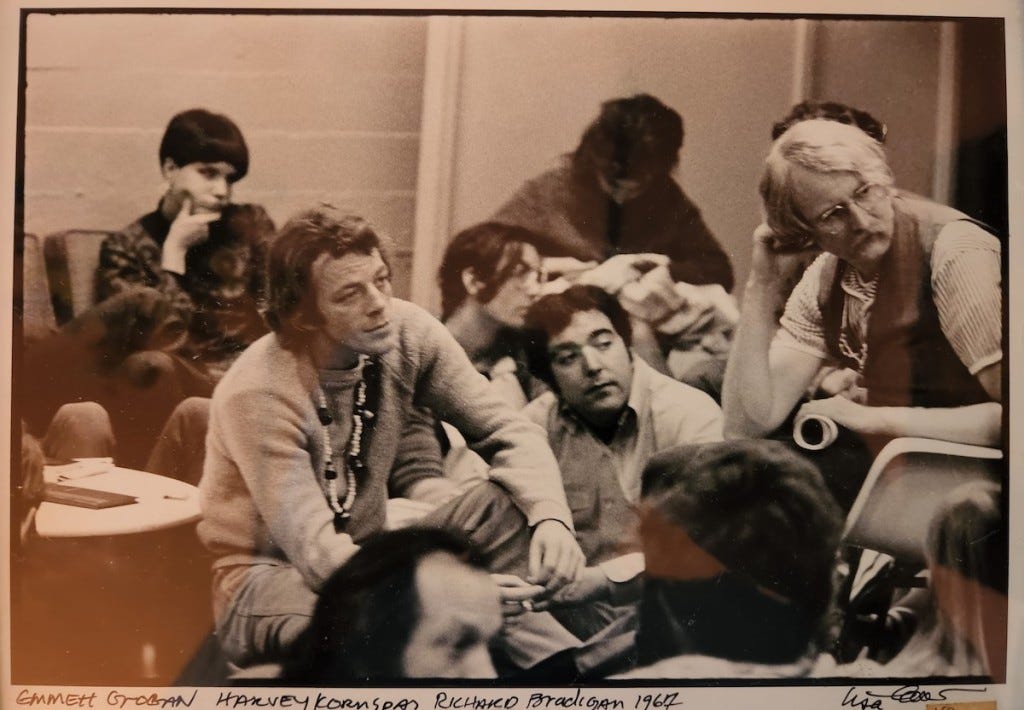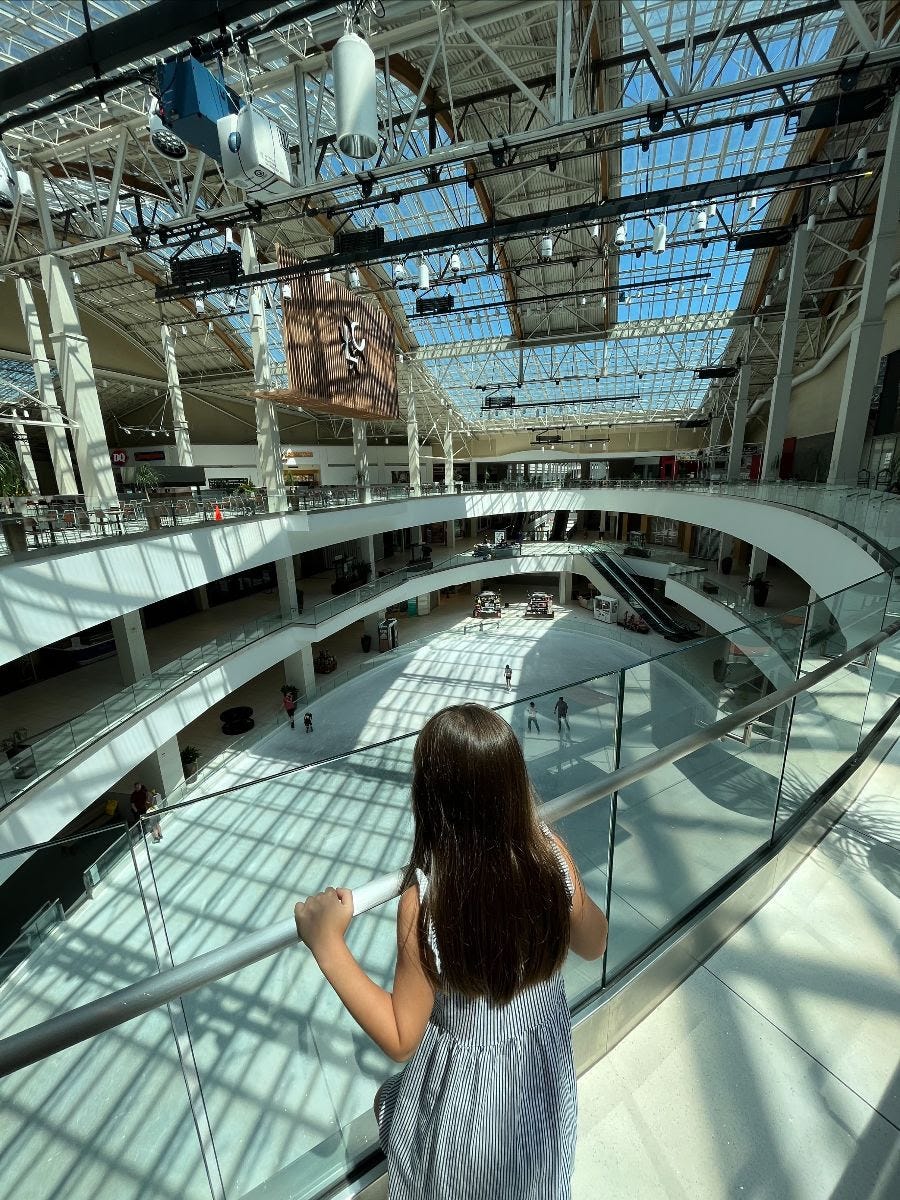[Landline] Interview with a '60s counterculture Zelig
The Diggers, the birth of the SF rock n roll scene, making Owsley acid (maybe), why Altamont went so wrong, and more
Landline No. 0039
August 1, 2022
New music recommendations: my Bandcamp wishlist
1. IF YOU ONLY HAVE A MINUTE AND WANT TO GET RIGHT INTO IT
Harvey Kornspan: a Jewish Ohio car dealer's kid who went from Bronx social work to the SF Mime Troupe to the Diggers to managing the Steve Miller Band. Bonus: why Altamont went so wrong. My 2010 interview with this Zelig, this mensch, finally online.
Read here: “How the Deal Really Went Down: Behind the scenes with San Francisco Digger (and counterculture Zelig) HARVEY KORNSPAN”
or…
2. IF YOU HAVE THREE MINUTES

I first interviewed Harvey Kornspan in August, 2010, after I had traveled hundreds of miles to interview many other Diggers in the San Francisco Bay Area, Sacramento and further up the coast, deep in northern California’s Emerald Triangle. This was a bit strange, given that Harvey lives in Silver Lake, less than two miles from the Atwater Village bungalow I was rented until 2008. For years I had been researching the Diggers, and there Harvey was all along, just a hop away.
But Harvey was not just a Digger, and he wasn’t just a local. Because unlike every other Digger I’ve ever met or contacted, before or since, Harvey had kept the figurative and literal receipts of the era. So not only did he have his wonderful memories — more of less: it was the ’60s, let’s be reasonable — but he also had unpublished letters, manuscripts, broadside drafts and business documents, as well as a sizable collection of flyers, newspapers, and other ephemera, which he was happy to share. (Some of them are shown here. Harvey is a mensch.)
For the uninitiated: in 2022, yes, the Diggers are little-known. But in 1966-8, such was the Diggers’ presence and notoriety that seemingly every reporter filing a story on the Haight included the Diggers in their account. “A band of hippie do-gooders,” said Time magazine. “A true peace corps,” wrote local daily newspaper columnist (and future Rolling Stone editor) Ralph J. Gleason. The Beatles’ press officer Derek Taylor would later write, “[The Diggers] were in my opinion the core of the whole underground counterculture because they were our conscience.”
So, as the counterculture came into being, the Diggers were there, the Diggers were important, the Diggers were well-known, but crucially, though they acted in public, the Diggers were anonymous. Nobody knew who they were, where they came from, or how they did what they did. In short, they had a mystique: a group of LSD-fueled street anarchists with a philosophy/practice of “everything is free / do you own thing.”
I recently came across a March 1967 article from the Foghorn, a student newspaper published by the University of San Francisco, a private Jesuit school, that summed up the Diggers vibe succinctly:
The sign on the door said, “You are a digger.” About 50 people had accepted the invitation and moved into the house high in the hills over the Haight-Ashbury.
A cauldron of stew was cooking in the kitchen. The stew, eventually, would be trucked down to the Panhandle, free for anyone with a bowl and a spoon. No one know for sure who brings the food that goes into the stew. Some is donated, some bought, some stolen. The stew would be good today; someone had brought two chickens.
It’s all the work of the Diggers, a mysterious, amorphous group in the Haight-Ashbury dedicated to given things away free and “doing their thing.” They have been evicted from more than half a dozen flats, apartments, and store fronts in the six months of their existence in San Francisco.
One place of refuge is the All Saints Episcopal Church on Waller, where Father Leon Harris has let the Diggers use his church kitchen to prepare the food for the Panhandle for three weeks now.
“The Diggers are industrious, cheerful and benevolent,” he said. “They also give away free clothing and find lodging for homeless people. It seems to me they put a lot of professing Christians to shame by their goodness.”
What follows is a consolidation of various conversations with Harvey, which, to some degree, builds on my previously posted Diggers oral histories, and, as it includes the inside story of why the Altamont disaster happened, offers something of a conclusion. So, many incidents and personages are spoken of without context, or only in passing. My advice to the casual-but-curious reader is to simply let any unfamiliar/unexplained bits pass. Keep reading, you might get something out of the next part.
3. TAKING OVER THE DEAD MALL
This news from Jason at the Floating World Comics shop in Portland is so exciting and inspirational that I am going to quote his recent news bulletin in full:
For the past 16 years, I’ve been proud to call Old Town Chinatown home to Floating World Comics.
My connection to the art and comics scene in Portland started here. Everything has been connected to this neighborhood: the First Thursday art shows, the Goldsmith Art Blocks, animation fests and book release parties, being a destination spot for locals and travelers alike. It has been a privilege to identify as a Chinese-American business owner with a shop in Chinatown. My wedding was a few blocks away at the Lan Su Chinese Garden and my daughter grew up running around the shop.
We’re still here, which after the past two years is something that I’m happy to be able to say. I’m grateful that I’ve had the opportunity to wait things out in the same location since the pandemic started. But honestly, the past couple years have been lacking a lot of things that used to make this neighborhood so fun and special. I’ve been reflecting on this space – what am I holding on for? A past that might not be coming back… I accepted a sad realization, after 16 years, it’s time to move from Old Town.
I started looking at other neighborhoods for the shop. I was hoping to stay downtown, but availability was scarce. Something felt out of step. It didn’t feel right to try and go back to business as usual. Everything is still pretty weird, and I started feeling that surreal sense of liberation from the early days of the pandemic – when anything seemed possible and we might actually try something new.
My friend Tony Remple just reopened his record store, Musique Plastique, at the Lloyd Center with a storefront by the ice rink. Wait, the Lloyd Center? Didn’t that close last year? I asked Tony how the new shop was going. It was going great. They were throwing weekly parties with DJs and all their friends were coming to hang out at the mall.
In December 2021, the Lloyd Center got new owners with a two-year plan to bring in new local independent retailers and pop up shops. I contacted the manager and arranged to look at some potential spaces.
Walking into the Lloyd Center for the first time in many years I was surprised by all the natural sunlight bathing the first floor. Had that giant skylight ceiling always been there? The mid-century architecture functioned like a comfortable airport. The foot traffic was chill, but purposeful. I’ve never thought of a mall as calming and soothing, but the energy was fresh and relaxing. A friend remarked that it felt so peaceful that they “expected a deer to walk by.”
It all started to click: the free parking, easy access to transit, central location, a historic space turned blank canvas to be shaped by Portlanders looking to build community. It would be a big project, a bigger task than simply moving my shop, but the potential was too exciting to ignore. I decided: I am moving my shop to the Lloyd Center.
That shopping mall carries so many memories for Portland. I haven’t talked to anyone who didn’t work there at some point, or have some story about the place. It’s weird to have nostalgia for an old mall, but really, this is our heritage. We built these spaces, they outlived their original purpose, but they are ours to either let wither, or to reimagine…
Is an empty mall post-apocalyptic or pre-utopian? We get a say in it. I envision empty storefronts filled with exciting local, independent businesses. Local artist Eric “E*Rock” Mast is opening a Dreem Street shop next door to Musique Plastique. Another friend is starting a gallery upstairs. We’re calling it the “Lloyd Arts District.”
The location couldn’t be more different, but the spirit reminds me of the early years of Floating World. It reminds me of a scrappier Portland that we haven’t seen in a while. After two years of Covid taking so much away, it’s the type of rebirth and renewal story we all need. We have an opportunity to use this beautiful space that belongs to Portland, and actually create new memories there.
I want to give my sincerest thanks to our staff and all the customers who supported us during this tumultuous time. You’re the reason that Floating World is still here, and you’re the reason this change is possible.
We’ll have a Moving Sale to celebrate and say goodbye to the old location from Friday July 29 - Sunday August 8.
Then we can’t wait to see you at the new space in the Lloyd Center this August. Take the escalator up from the ice rink, we’ll be upstairs (1223 Lloyd Center) next to the Gamestop and Gambit Games.Things don’t have to go back to the way they were, and that’s okay. In the meantime we’re going to have some fun in the mall.
More info: https://floatingworldcomics.com/archives/19689
To freer times,
Jay Babcock
Tucson, Arizona





Dear Substack members,
I'm inviting you to visit my page and the last review I have uploaded recently. I'm going to do more reviews on a regular basis :)
Thank you in advance!
Jaroslav
https://jaroslavnovosyolov.substack.com/p/-?utm_source=%2Finbox&utm_medium=reader2